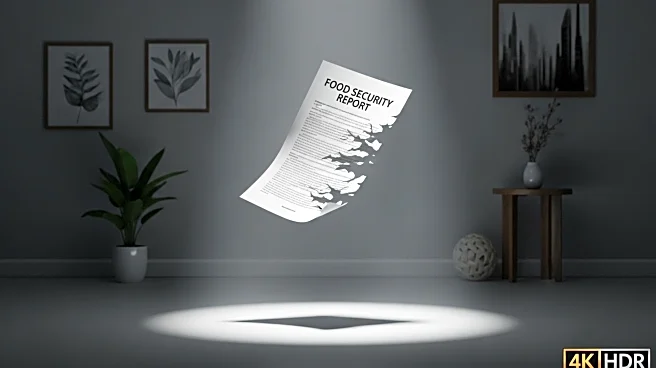What is the story about?
What's Happening?
The U.S. Department of Agriculture (USDA) has announced the termination of its annual household food security reports, which have been a key tool for tracking food insecurity in the United States. The USDA claims these reports are redundant, costly, and politicized, and have not effectively contributed to reducing food insecurity despite increased spending on the Supplemental Nutrition Assistance Program (SNAP). The reports, established 30 years ago, have been used to support SNAP eligibility and benefit allotments. In recent years, food insecurity rates have fluctuated, with 13.5% of American households experiencing food insecurity in 2023. The decision has sparked concern among advocates, including Eric Mitchell, president of the Alliance to End Hunger, who argues that discontinuing the survey signals a deprioritization of hunger tracking and combating efforts.
Why It's Important?
The discontinuation of the USDA's food security reports is significant as it removes a critical data source for policymakers and advocates working to address hunger in the U.S. These reports have historically served as a measure of the effectiveness of policies aimed at supporting low-income families. With ongoing concerns about food inflation and cuts to SNAP, the absence of this data could hinder efforts to improve food security. The decision may affect millions of Americans, including 14 million children, who face hunger, as noted by Feeding America. The move could also impact future policy decisions and resource allocation for food assistance programs.
What's Next?
The USDA's decision comes during Hunger Action Month, a time when advocacy groups like Feeding America are focused on raising awareness and support for hunger relief efforts. The One Big Beautiful Bill Act, signed by President Trump, has already introduced changes to SNAP, including increased cost-sharing by states and stricter age and work requirements for participants starting in fiscal years 2027 and 2028. Stakeholders may need to explore alternative methods for tracking food insecurity and advocating for policy changes without the USDA's reports.















